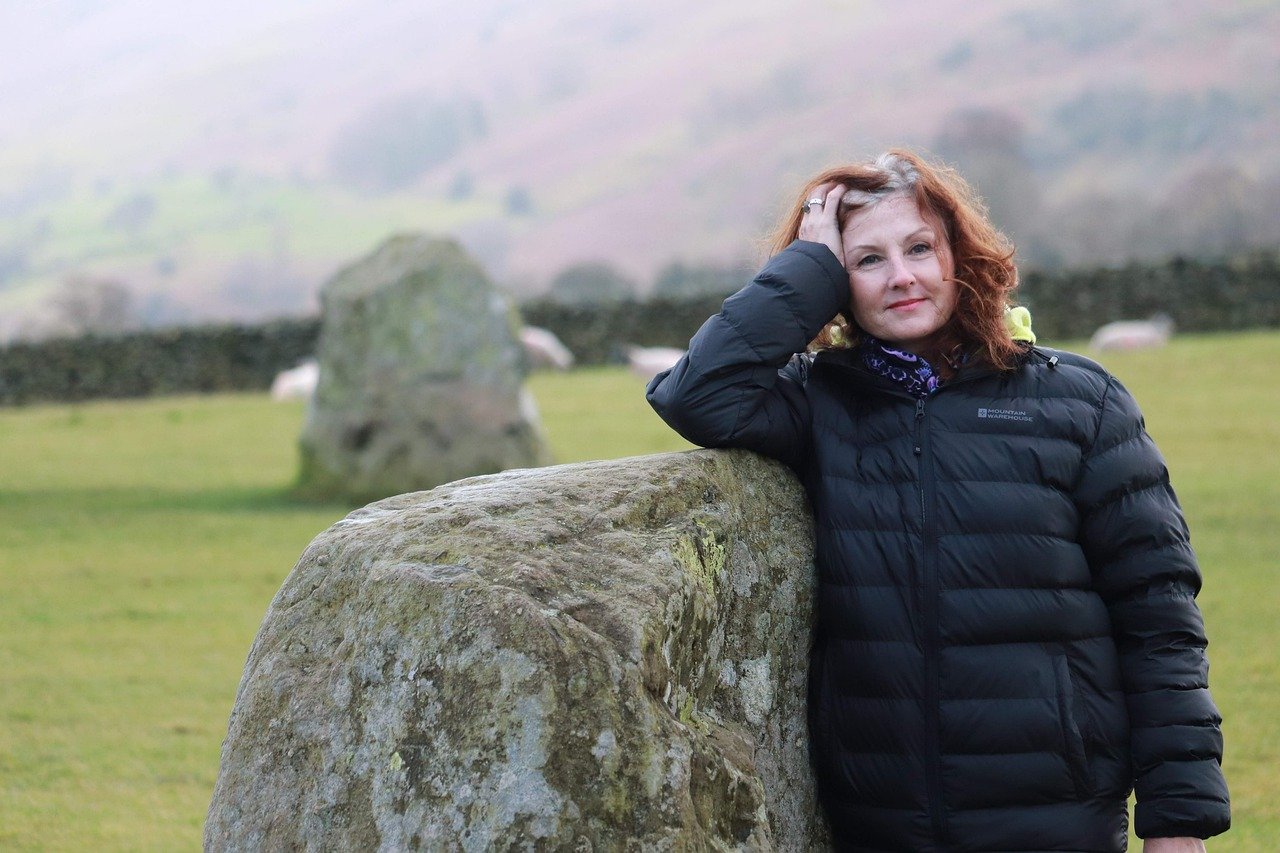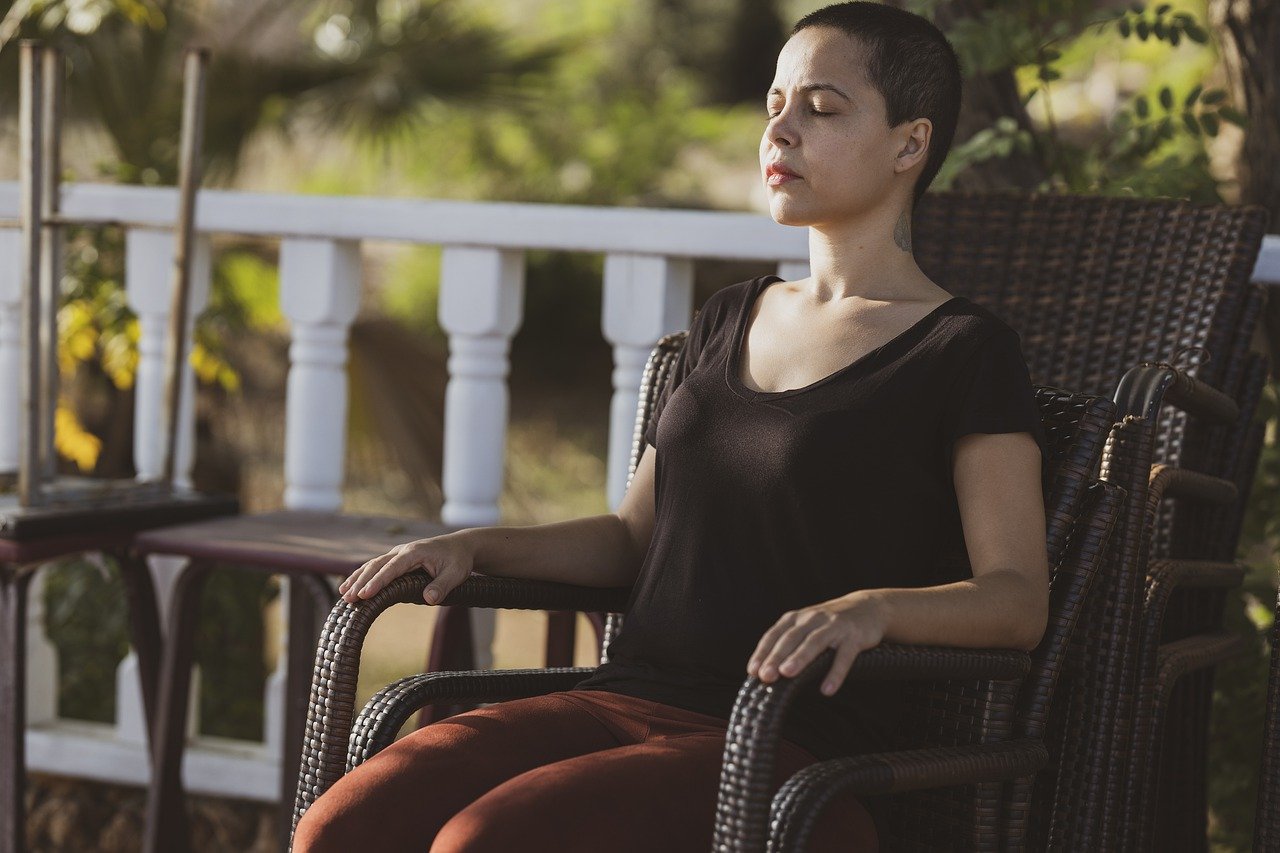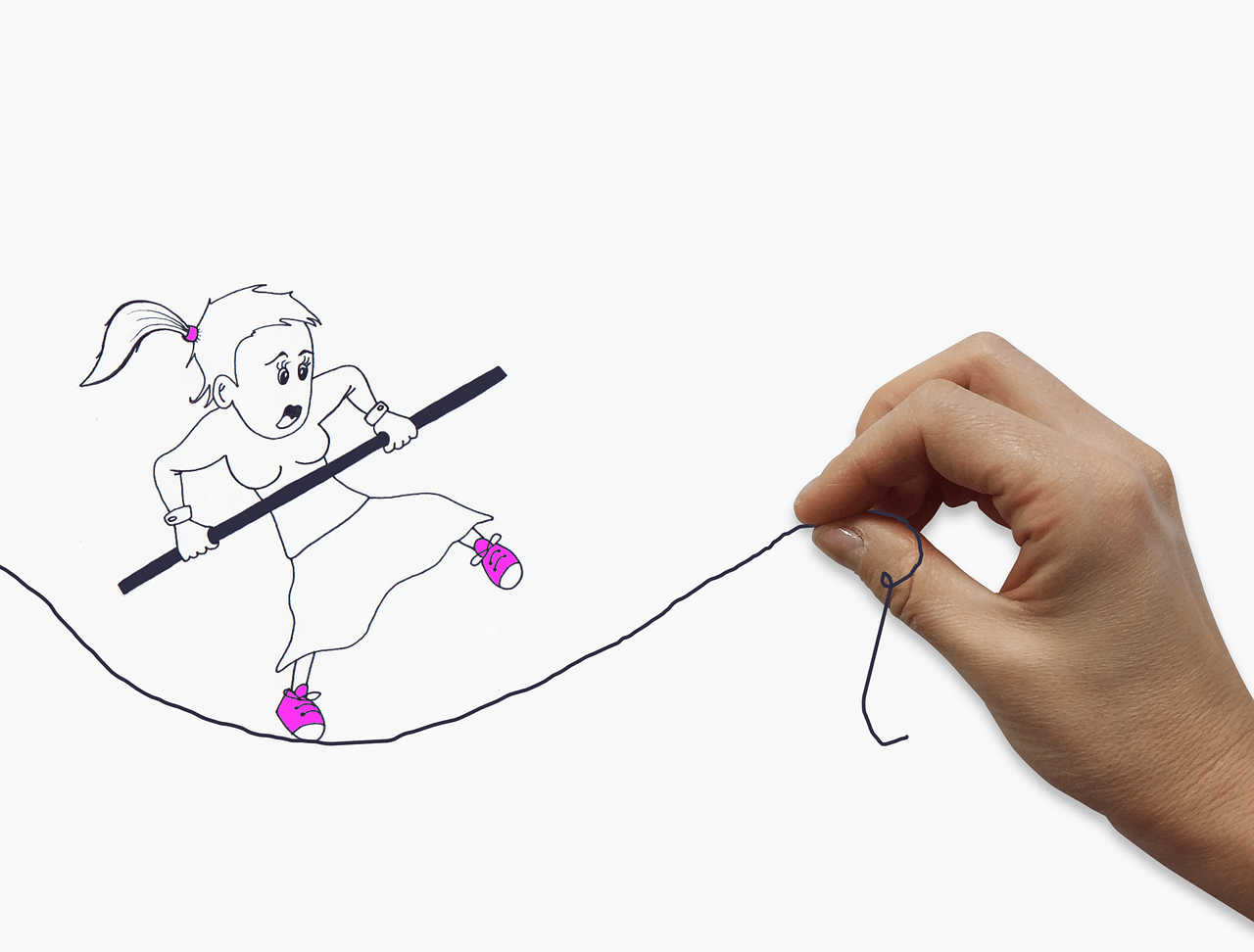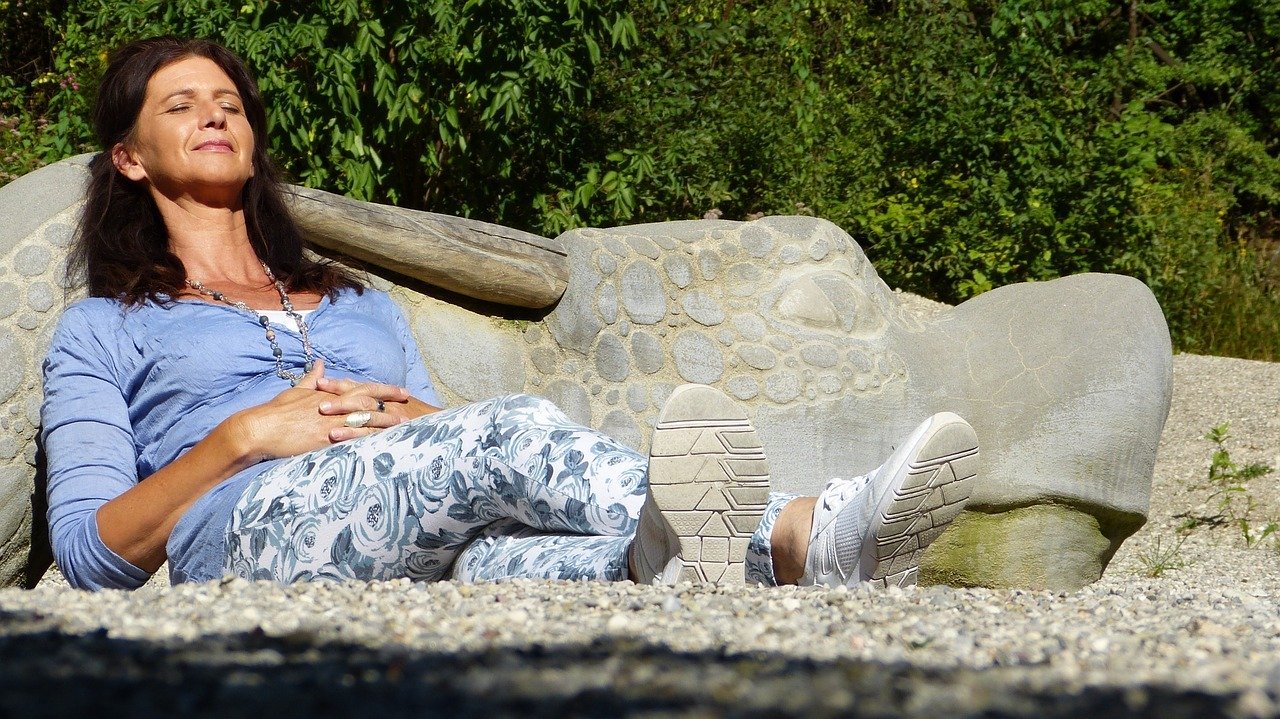So I’ve been a bit resistant to write about my own health issues right now, but after another sleepless night I thought it was important and as I thought nobody else had this experience I went to a perimenopause group I am in online and posed my experiences to them. I was very surprised to see so many women telling me they gasp for air during the night too and how frightened they are.
Now as many a woman who is experiencing perimenopause will know, so many sites list the symptoms of menopause, but this is one lesser known or one less likely to be talked about and I wonder, is it because many women think they are living an isolated experience so don’t share it with their doctors or friends and family?
Anyway, this leads me to today, this is going to be an exploratory post and I hope in time I can update it with methods, techniques, tools, and products that have actually helped me with my own menopausal symptoms.
What Is Perimenopause?
So let’s begin. First a short intro to what perimenopause is.
Many people when they think of menopause they just think it’s the end of menstruation for women, so many haven’t even heard the term perimenopause. One woman I spoke to said her nurse said there was no such thing as perimenopause only menopause, which to be honest if medical providers don’t know, we have no choice to work it all out ourselves. I still think women’s health issues related to hormones are shoved under the rug. In the West it is made out that menopause is a disease, that we need drugs to get rid of it. I am of the opposite position. I believe menopause is a time of change, a time of personal empowerment as a woman, a time when we are going towards entering our wise Crone years, yet it is also a time in the West especially (it seems to be less so in the East), of increasing symptoms, when women may feel they are falling apart at the seams and one symptom arrives and then another and then another and before you know it you’re think you’re ready for the knackers’ yard (a term used by those in my birth city of Newcastle, basically meaning ready for the grave), but it doesn’t have to be this way, surely?
Menopause is when your periods cease to be. They say if you have not had a period within 1 year (for a normal menopause) or 2 years if you have had an early menopause, you are then post-menopause.
But perimenopause is actually the time when many of us may suffer from all these crazy symptoms.
Throughout our lives to this point our bodies had a balance of estrogen and progesterone. At perimenopause estrogen in particular begins to decline. Estrogen makes us fertile and gives us that soft feminine feeling of being a woman, someone jokingly said that menopausal women become more strong and vocal at this time because we haven’t got the nicey-nicey, softy, fluffy, pink estrogen so much flooding through our bodies, she could have a point there.
But it is a time when we will feel hormonal changes more than ever. It is similar to becoming a woman, during the teenage years, when our periods came, we had many aches and pains, sleepless nights, mood swings, but at perimenopause we are going towards our elder years and well, I will quote the list of potential symptoms that can happen during perimenopause and then I will go into my own (and others I have heard from) experiences of the less well-known gasping for air, potential sleep apnoea, asthma… basically breathlessness that can be very frightening for women.
This list is from WEBMD
- Hot flashes
- Breast tenderness
- Worse premenstrual syndrome
- Lower sex drive
- Fatigue
- Irregular periods
- Vaginal dryness; discomfort during sex
- Urine leakage when coughing or sneezing
- Urinary urgency (an urgent need to urinate more frequently)
- Mood swings
- Trouble sleeping
Now that’s a lovely list isn’t it? As if many women have not had enough to deal with in normal adult life, we just get a bunch of other crap in mid-life.
When Does It Happen?

Perimenopause generally begins in the forties and menopause ceases in the fifties, but some do get early menopause due to trauma, chemotherapy, hysterectomy or other reason. They often say it lasts around 4 years, but for some 10 years (eek!).
From my own research, women can get earlier menopause if they haven’t had children also, which is my category and I am pretty sure that I have had growing menopausal symptoms for years now (I am currently 44).
If you check back the history in your family, you may find what kind of experiences you may have or when it will begin. My grandmother on my father’s side apparently started menopause when she was 36. Now, due to a lack of history I am not sure if that is when her symptoms began or when her periods stopped. I encourage all mothers to share with their daughters the female history from both sides of the family gene pool. It can help prepare us to understand what is happening.
What Are Your Symptoms?
Well, as I said for a few years I have been having symptoms, I thought it was too early so didn’t think of menopause. My first symptoms seemed to be itchy skin and heat. I didn’t get hot flashes as such, but I had really burning skin and at times when I felt my hormones surging or shifting, I would get this crawling itching skin on my scalp, arms and particularly on my spine (I also feel this kind of energy can relate to a spiritual Kundalini awakening, a fiery sexual energy rising up the spine). This lasted a couple of years until I saw an acupuncturist, changed my diet to not having large meals in the evening and introducing more sour based foods into my diet. Thankfully, that is one symptom that seems to have gone now.
My current symptoms are more irregular periods, sometimes longer cycles, sometimes I get one period and then two weeks later another. My mood swings have increased, and I snap for no reason sometimes, along with depression type feelings. I have more achy joints, knees, neck, back-ache (even though I’ve been seeing a chiropractor), really sore aching breasts at times, vaginal dryness, digestive upsets, low libido and the worst is sleepless nights. I’ve never tossed and turned so much in my life.
The only times in the past I tossed at turned was a few days leading up to my period and that was it.
But as for the reason of this post, the sleepless nights have not just been tossing and turning. They have felt very frightening to me. For a few years now I have been gasping for air at night. I thought it was panic attacks at first. I even had my heart checked out and was on a monitor at home for over a week but there were no spikes or changes in my heart rate. In the beginning this gasping for air was just sporadic, around menstrual cycle, now, I get it many times a month, sometimes for a full week.
The best way I can describe it is that I can be incredibly relaxed, very sleepy and about to drop off to sleep when suddenly I feel like I have stopped breathing and I gasp in a panic for air. Over the past few weeks I find now when I lie on my back (or side) it feels like my chest has no space for oxygen, like my lungs are not operating at full capacity.
It has been a very confusing symptom because I have suffered with anxiety since childhood and I also have a condition called Rhinitis that causes me difficulty breathing through my nose. Due to this condition I have post nasal drip that goes down the back of my throat at night, which probably doesn’t help this symptom. I get very scared with it and as much as I know how to meditate and be mindful of feelings, this panic is terrifying some nights. I feel like I’m are going to die every time I drop off to sleep, and it’s awful.
Is it Sleep Apnoea?

Sleep apnoea is often when people stop breathing during the night. Now sleep apnoea is something I have researched and it could be, because from what I have seen, the changes in hormones can redistribute the fat in the body and can increase it in the throat area, but also many people I know who suffer with apnoea often don’t know they are, because they are already asleep and stop breathing. Whereas my symptoms are pre-sleep, I am just about to sleep, so it’s a confusing time for me.
I intend to see my Doctor soon just to get things checked out, I recommend any woman concerned go see a female Doctor and get blood tests and any others they recommend.
Another piece of online research I did discover that apparently according to a study in Norway, during menopause we can have a declining lung function happen. Now, I have to ask, why do we as women have to go through so much? Doesn’t it just annoy you sometimes?
According to this study the decline in lung function is similar to smoking 20 cigarettes a day!
I don’t smoke and yet I get to experience this anyway?
From the study it says:
“Menopause is associated with changes in sex hormones, which affect immunity, inflammation, and osteoporosis and may impair lung function. Lung function decline has not previously been investigated in relation to menopause.”
“There may be several possible explanations for these findings. Menopause brings hormonal changes that have been linked to systemic inflammation, which itself is associated with lung function decline.”
“Hormonal changes are also implicated in osteoporosis, which shortens the height of the chest vertebrae and may, in turn, limit the amount of air a person can inhale.”
Triebner
Trieber underlines that women, and their physicians, should be aware that respiratory health might decline considerably during and after the menopausal transition.
“This could mean that they experience shortness of breath already with low physical activity,”
Triebner
Conclusions from the study
Lung function declined more rapidly among transitional and post-menopausal women, in particular for FVC, (forced vital capacity) beyond the expected age change. Clinicians should be aware that respiratory health often deteriorates during reproductive aging.
If you want to read this study in full click HERE
Okay so now we have a possible reason for this happening, what can we do about it?
Firstly I want to share a disclaimer. I am not an expert, I am a perimenopausal woman experiencing many symptoms, so I am going to share ideas I have been given and I am in the process of trying. I don’t have any significant results yet, but once I do, I will do an update post and link it at the bottom of this post.
Balancing Hormones

Natural Progesterone Cream
While for many going the HRT (hormone replacement therapy) route works for them, and that’s great if it does, but as someone who prefers a more natural route through the menopause I am continuing to use natural progesterone cream, which is a bio-identical progesterone (unlike HRT which uses the more artificial progestins not progesterone). I started using natural progesterone cream after I came off the contraceptive pill many years ago.
The pill really messed around with my hormones. I also then got some symptoms apparently related to polycystic ovary syndrome (facial hair, mood swings etc), so I have stayed on natural progesterone, because I went from incredibly painful periods to little or no pain. My moods lifted too because of using this.
Since perimenopause I have adjusted my dose a little because of the increase in symptoms. I have only done one cycle on this new dose, so I am seeing if it makes much of a difference in my moods and body. I am also considering trying out the 20-1 cream from Wellsprings (where I get my cream from in the UK), which has the same dose of progesterone, with a small amount of Estrogen
Dr John Lee’s book on natural progesterone called ‘What Your Doctor May Not Tell You About The Menopause’ is very helpful. He is the man that really pioneered the use of natural progesterone.
Diet
Many change their diet, use herbs and other natural plant allies. I am not an expert in this but found Susun Weeds’ book ‘New Menopausal Years’ helpful. She also recommends some excellent tinctures you can make or buy and herbal allies that have helped a lot of women increase libido and reduce the more challenging symptoms of the menopause. It’s a lot to take in and I use it in some areas but find I need to adapt the advice depending on my own issues. The list of herbs is very useful and at one point I was drinking nettle infusion daily and it definitely increased my energy throughout the day. Some herbs are adaptogens, meaning they naturally balance the hormones, so it’s well worth looking into if you are into this way of moving through to your Crone years.
Gasping for Air and Fear
Posture and Keeping the Chest Open
Prior to discovering that this could be a perimenopausal issue, I was seeing a chiropractor for over 12 weeks. I had a quite pronounced bend in my back and my shoulders went forward due to poor posture for years. This caused back problems and neck problems. My back is much straighter now and as I am a side sleeper (because of recommendations from chiropractor) I hold a firm pillow in bed between my arms and it helps me open up my chest so even if I do have a panic and gasping night, I am not adding to this by crushing my lungs when I curl into the foetal position in bed.
CBD Oil
I’ve been taking CBD oil for some time. It is very good for anxiety and panic attacks during the day, but I also take it a little before bedtime. Many people say this helps them relax, but for me I needed to take it at least an hour before as sometimes it can energise me too. As with anything, trial and error, we are all unique individuals.
BACH RESCUE Remedy Sleep
Somebody recommended this to me in the perimenopause group I am in. It did relax me some before bed and I did manage to get some sleep that night, along with panics and gasping for breath, but it was not as bad as the night before, so I do believe it helps. I used the Sleep Melts.
From their website The 5 Bach Flower Remedies in Rescue Remedy and White Chestnut helps removing stress and repeated unwanted thoughts so that sleep comes naturally.
BREATHING TECHNIQUES
I am going to begin trying these methods this week. A number of people mentioned different ideas for breathing and expanding the lungs, practising breathing better during the day.
The Feldenkrais Method for breathing
Vital Breath #1 during Covid-19 – Best Techniques to Clear Sinus
ESSENTIAL OILS in a diffuser
I love essential oils, but it is something I have neglected for some time. I have a diffuser in my home and it became a piece of underused furniture, so today I have it out again, next to my computer and I am trying a number of oils that are supposed to help balance hormones, help us think clearly and also help with breathing and stress.
Some of those I am trying are
Clary Sage
Lavender
Ylang Ylang
Geranium
And something not mentioned for menopause, I added some Rosewood to the mix because I like the smell.
I am planning on buying some peppermint oil and pine oil because this helps with breathing.
Some people swear by using Olbas oil or Vicks Vapour Rub at night. I am quite sensitive to smells at night, but I am prepared to try oils again. Sometimes if I use Vicks or Olbas oil I get far too energised. I breathe better, but I don’t sleep because I am wide awake, so again it’s all about getting the balance right.
Magnet Therapy
Some people use magnet therapy to help with the numerous issues we women experience during perimenopause. (One lady I spoke to uses a magnetic sleep mat to help with problematic sleep). It works for them, I am trying out some weaker magnets at the moment, no change yet, but I imagine some of the stronger magnets like Ladycare I have heard about may help more with menopause, I’d be interested to hear from anyone who has used these products.
Apart from the numerous supplements many of us take, someone did mention B12 as a supplement that helps oxygenate the blood. The last time I visited the acupuncturist he did say my blood was in stasis, in other words, it was not moving all that well. My osteopath also said when she tuned into my lungs that she felt one lung was not functioning as well, so we did some energy work on this.
I think anything and everything can be useful. We just need to try all these things out to see what works for us.
I think if you have had anxiety or other mental health issues prior to the perimenopause it can be a hard time, because we may have not breathed properly for years so we need to encourage ourselves to breathe more consciously.
I hope that as time goes on, I find out more information for you (and me) and any ideas you have, please do share in the comments below.
In the meantime, if you are wanting to have a more empowered experience of the menopause and not see it as a disease as we are taught in the West to believe, here are my top books (so far for going through the menopause).
BOOKS FOR MENOPAUSE
So…That’s Why I’m Bonkers!: A girl’s guide to surviving the menopause
Wenborne, Sheila
Passage To Power: Natural Menopause Revolution
Kenton, Leslie
New Menopausal Years: Alternative Approaches for Women 30-90: The Wise Woman Way (Wise Woman Herbal)
Susun S Weed
Find this helpful? Buy Kelly a coffee via Paypal
Disclaimer
The author of this blog is not medically qualified. The information contained in this blog is provided as the author’s personal opinion, based on personal experience and research, for your information, education and interest. In no way is it offered as medical advice, as a diagnosis or as a treatment for any physical or mental condition I recommend that you consult your healthcare professional for advice should you consider using any of this information.
Under no circumstances should you make any changes to any medication regime that your physician has prescribed without the knowledge and permission of that physician, who is legally responsible for your primary healthcare.
The author’s responses, if any, to any comments made by others, are not, in any way, to be considered as expert moderation. Any such responses are the author’s personal opinion, and are not offered as advice.
The author is not responsible for the content of any external site that may be accessed via links contained within this blog.
Latest Women’s Health Posts
- Perimenopause – Why Am I Gasping for Air?
- A Positive Chemotherapy Story
- Is Your Hormonal Cycle Reflecting The Death Of Your Dreams?
- Scared To Have A Smear?
- Why I’ve Been Quiet (Do not read if squeamish!)


I came across your article and am also experiencing gasping for breath when falling asleep at night. I know this was written a couple of years ago, but I was wondering if you were able to find out more information re. this issue. Thank you!
Author
Hi Karen, my sincere apologies for such a long long delay in replying to your comment. I took a long writing sabbatical for nearly 3 years. What I discovered was the more I face internal fears the less the gasping takes place. It has been quite a journey to really going down the rabbit hole in life. I’d say start with inner child healing.
Hi Kelly,
Thank you for your reply. I did get tested for sleep apnea and was told I don’t have sleep apnea so I’m also thinking it’s psychological. It seemed worse during the height of the pandemic and I was definitely anxious during that time period, I still have it, but it’s been better. I’m glad to hear you are having less gasping. Take care,
Karen